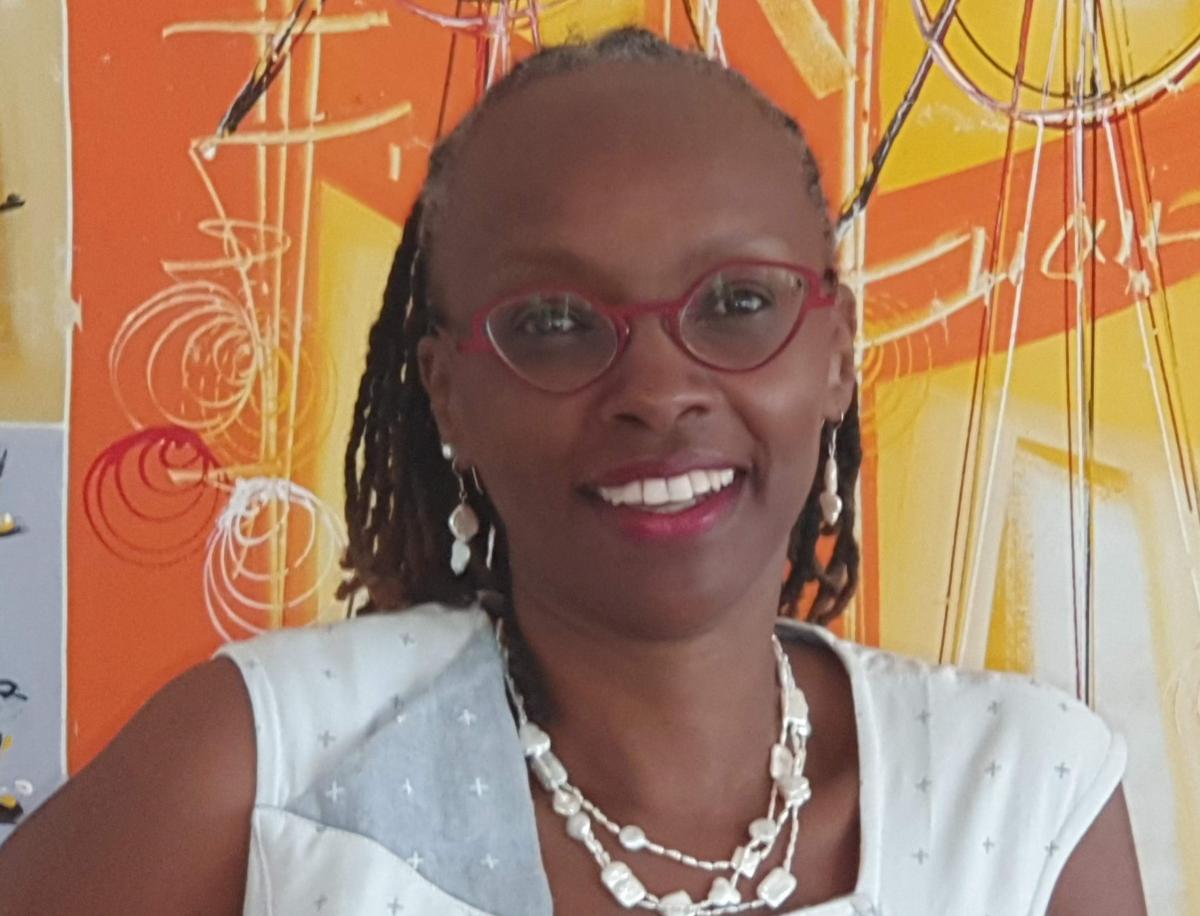Q&A with Alumna Judith Kunyiha

Judith Kunyiha (PHTM *95) is a Kenya-based advocate for policy change and development who has overseen multiple national and regional programs at the United Nations and non-governmental organizations. A programming expert for more than 20 years, she has brought her public health training to such critical areas as Female Genital Mutilation (FGM), adolescent sexual and reproductive health and youth policies, and HIV transmission. Over the course of her career, she has brought her insight and talents to areas of west, central and east Africa.
Responses have been lightly edited and condensed for clarity.
How would you describe your experience at Tulane when you were studying for your MPH degree?
I remember going to New Orleans. I’d graduated with my bachelor’s [degree] from Concordia University in Montreal, which is in the east and in Canada and completely different. I landed in New Orleans and thought ‘Oh my god. Where is this?’ It was a real culture shock seeing how different life was in the South. Culturally, it was a very diverse experience. The French Quarter and Bourbon Street — it was just wild.
Do you have any classes or professors that really stood out to you?
My advisor Carl Kendall. He did anthropology, and I didn’t get it at the time. I even wondered what it had to do with anything. When we were addressing issues of female genital mutilation and the abandonment of the practice, I got to understand the practice and look at it from a cultural lens. I got to appreciate the depth and why public health really encompasses everything about life. Even as you’re developing an intervention, you need to understand a person as a person so that you’re not just looking at that one particular issue. Instead, you’re looking at a person in their entirety and the situation and the environment within which they live.
Why do you think that public health is so important?
It is important because it looks at life and connects it to health issues. Health is not just medicine — it’s more than that.
Most of my experience has been in sexual and reproductive health, and I’ve worked with a lot of young people. When you are talking of early and unplanned pregnancies, you need to understand how this young girl is vulnerable. Who is impregnating her and how can we mitigate this for the girls that are not pregnant and provide appropriate support for the ones who are? These are the kinds of questions and issues that public health tries to look at. It brings in so many other aspects. You’re talking about sexual and reproductive health, and you are also talking about gender equality and equity. You are talking about human rights and what are the rights of this particular individual – why are they so left behind and what can we do to pull them up to a level playing field?
Do you have any advice for incoming School of Public Health and Tropical Medicine students?
I think when you're working in public health you have to be very flexible, and you will not necessarily be in all the nice posh fancy places. You may get a cultural shock because of where you're coming from in terms of the culture (much like I did when I first arrived in New Orleans), but it's a good run. When you're doing public health, you're going to be faced with many situations that you're not familiar with. Be open and try and explore and see what it is you like about them.
What advice would you share with our recent graduates?
Book knowledge is useful, but when you get out to the real world, it doesn't necessarily work the way it works in the book. You have the foundations, so be willing to actually use the foundations and grow with them. Allow yourself to be mentored by the people that you are going to come across. When you have success celebrate it, where you make a mistake, use that as an opportunity to grow and learn from that. You can always course correct, you can grow from it, and learn something new.
Where do you see the field of public health going after the international changes brought about by COVID-19?
With the changing world, you have a humanitarian emergency response that evolves all the way into development. What we need to look at and really focus on is resilience. I think the COVID-19 pandemic has just demonstrated to us that preparedness is not just something that happens in Somalia or Afghanistan. We all need to be prepared. We all need to have contingency plans, preparedness plans — and we need to know how to act.
